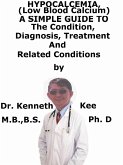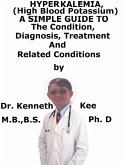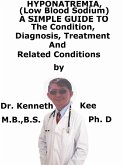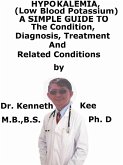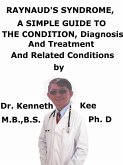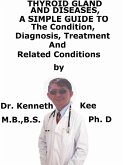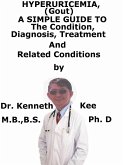Normal blood Calcium varies from 8.4 to 10.4 mg/dL (2.25-2.6 mmol/L).
In hypercalcemia, just over 50% of the circulating calcium is protein bound and the level of circulating protein, mainly albumin, must also be considered in making this measurement.
The value for serum calcium is often given by laboratories as both an uncorrected value and a corrected value which has permitted for changes in albumin levels.
It is only the ionized (unbound) calcium which is important the body, taking part in cellular activities such as neuromuscular contraction, coagulation and other cellular activities.
Raised calcium concentrations are linked with significantly decreased quality of life and higher healthcare consumption.
Calcium has an important part to play in the effective working of the majority of cells in the body and it is therefore essential that the optimal level be maintained by the body.
A decrease in serum calcium can stimulate parathyroid hormone (PTH) release which may then raise bone resorption, increase renal calcium reabsorption, and activate renal conversion of 25-hydroxyvitamin D3, to the active 1,25-dihydroxyvitamin D3, which then will raise intestinal calcium absorption.
These mechanisms restore the serum calcium to normal and restrict further production of PTH and 1,25-dihydroxyvitamin D3
Parathyroid hormone (PTH) and Vitamin D help organize calcium balance in the body.
PTH is produced by the parathyroid glands.
Vitamin D is received when the skin is exposed to sunlight, and from dietary sources.
The most frequent cause of high calcium blood level is excess PTH secreted by the parathyroid glands happening due to:
1. An enlargement of one or more of the parathyroid glands.
2. A growth on one of the glands.
Most of the time, these growths are benign.
3. Calcium blood level may also be high if the body is low on fluids or water.
Other disorders can also cause hypercalcemia:
1. Certain kinds of cancers, such as lung and breast cancer, or cancer that has spread to the organs.
2. Too much vitamin D in the system.
3. Being on bed rest for a long time.
4. Being bed-bound (or not being able to move) for a long period of time.
5. Too much calcium in the diet.
The disorder is most often diagnosed at an early stage using routine blood tests.
Most people are asymptomatic.
Symptoms due to high calcium level may be varying, dependent on the cause and the duration the disorder has been present:
1. Digestive symptoms, such as nausea or vomiting, poor appetite, or constipation
2. Raised amount of thirst or more frequent urination, due to changes in the kidneys
3. Muscle weakness or twitches
4. Alterations in how the brain works, such as feeling tired or fatigued or confused
5. Bone pain and long-term spine alterations, if the bones have become thinner or weaker
An accurate diagnosis is required in hypercalcemia
Investigations
1. Serum calcium and phosphate
2. Serum PTH
3. Serum PTHrP (PTH-related protein)
4. Serum alkaline phosphatase
5. Blood albumin and proteins
6. Urine calcium and phosphate
Acute hypercalcemia is a medical emergency because of its effect on the heart rhythm.
1. Immediate treatment of intravenous isotonic saline and replacement of salt in a hospital raising the circulating volume with 0.9% saline
2. A powerful diuretic such as frusemide to reduce fluid overload
3. Phosphate intravenously or orally can also be effective to decrease the calcium from the blood
4. After rehydration, bisphosphonates, Salmon Calcitonin, steroids decrease the high blood calcium
People with primary hyperparathyroidism may need surgery.
TABLE OF CONTENT
Introduction
Chapter 1 Hypercalcemia
Chapter 2 Causes
Chapter 3 Symptoms
Chapter 4 Diagnosis
Chap...
Dieser Download kann aus rechtlichen Gründen nur mit Rechnungsadresse in A, B, CY, CZ, D, DK, EW, E, FIN, F, GR, H, IRL, I, LT, L, LR, M, NL, PL, P, R, S, SLO, SK ausgeliefert werden.



